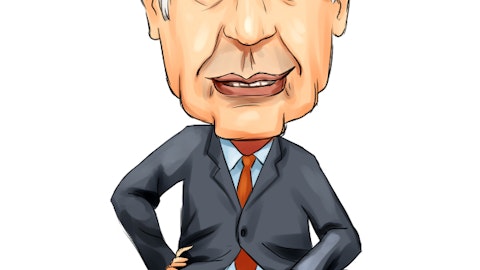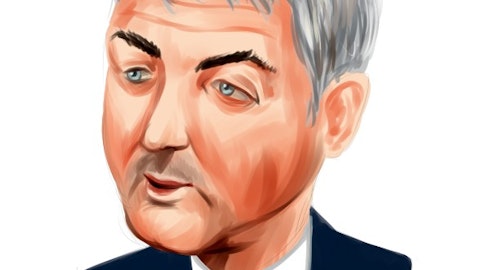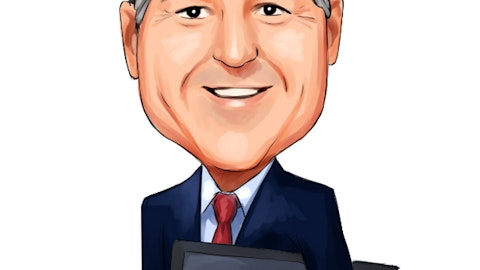Editor’s Note: Related tickers: Nuance Communications Inc. (NASDAQ:NUAN), Herbalife Ltd. (NYSE:HLF)
Is stopping Keystone a San Francisco hedge-fund billionaire’s shrewd investment? (WashingtonExaminer)
Tom Steyer, San Francisco hedge-fund billionaire and million-dollar donor to Democratic candidates — including President Obama — is something of a one-man Big Green with greater wealth and deeper contacts than many activist non-profit foundations. He’s waging a dogged end-of-the-world money war against fossil fuels and is currently cramming mega-bucks into a costly fight against the Keystone XL pipeline as a “game-over” environmental doomsday. Winning his fierce battle, however, won’t do a thing about global warming, say climate researchers. Ken Caldeira, climate researcher at the Carnegie Institution for Science in Stanford, Calif., told Nature Magazine in August: “I don’t believe that whether the pipeline is built or not will have any detectable climate effect.”

Carl Icahn Increases Stake in Nuance, May Seek Seat on Board (BusinessWeek)
Billionaire investor Carl Icahn boosted his stake in Nuance Communications Inc. (NASDAQ:NUAN) and may seek to put a representative on the board of the speech-recognition software maker. Funds controlled by Icahn, including Icahn Partners LP and Icahn Onshore LP, reported a combined 16.9 percent stake in Nuance, up from 16.4 percent, according to a filing (NUAN:US) with the U.S. Securities and Exchange Commission yesterday. Icahn uses holdings to seek change in companies he deems undervalued or ill-managed. When Icahn fist took a stake in Nuance Communications Inc. (NASDAQ:NUAN), the investment was seen as a move to push the company to sell itself or shed some businesses.
Herbalife billionaire brawl puts spotlight on N.J. professor (Reuters)
In the battle of investors who’ve made opposite bets on the shares of Herbalife Ltd. (NYSE:HLF), both sides – including firms led by billionaires Bill Ackman and George Soros – have consulted a New Jersey college professor and studied his research. For decades, William Keep, dean of the School of Business at the College of New Jersey, has pursued a relatively obscure marketing specialty known as multilevel marketing businesses, or MLMs. But as a new go-to adviser for some of Wall Street’s biggest players, Keep has been suddenly thrust into the spotlight. In December, Ackman placed a $1 billion short bet against Herbalife Ltd. (NYSE:HLF), citing the professor’s research…
Hedge fund managers worth watching (Opalesque)
It is always interesting to see what hedge fund managers are doing with their portfolios. Hedge funds are lightly regulated which means managers are much less constrained by rules that apply to mutual fund managers. They can invest in almost any situation where they see an opportunity to achieve positive returns. Overall, most managers are focused on three broad themes: the implications of the Fed’s possible tapering of bond purchases and eventual normalization of interest rates, the scaling back of international exposure given short-term volatility in countries such as China and their general optimism about the equity markets.
Hedge Fund That Lost 96% Survived Long Enough To Breach Contracts, Lose Subsequent Legal Battle (DealBreaker)
That Ebullio Capital Management’s Commodity Master Fund would be liquidated is not a surprise: Most hedge funds that lose 96% in two months meet such a fate. What is a surprise is that said fund is liquidating three-and-a-half years after those losses, and only because (a) it was still able to find counterparties with which to enter into contracts that it could breach or reach oral agreements to roll, depending on whose story you believe, and (b) because a Cayman Islands judge has ordered it be so.* Unfortunately for the ECMF’s remaining (and, it must be said, very patient) investors, this means that their losses are about to be extended to 99.8% or so.
Preqin: Expensive hedge fund managers perform better (PIOnline)
Hedge fund managers who charge performance fees greater than 20% produce better net returns over longer periods than those who charge 20% or less, according to new data from research house Preqin. For periods ended July 31, the most expensive hedge funds with incentive fees over 20% returned a net 7.79% year-to-date; one year, 13.29%; three years, 10.73%; and five years, 10.55%. By contrast, for the same time period, hedge funds with a 20% performance fee returned a net 4.1% year-to-date; one year, 8.69%; three years, 7.98%; and five years, 8.34%. Finally, funds with fees under 20% returned 6.35% year-to-date; one year, 13.32%; three years, 6.89%; and five years, 7.31%. Preqin’s multiyear returns are annualized.
Mad Money, August 29, 2013 (CNBC)





